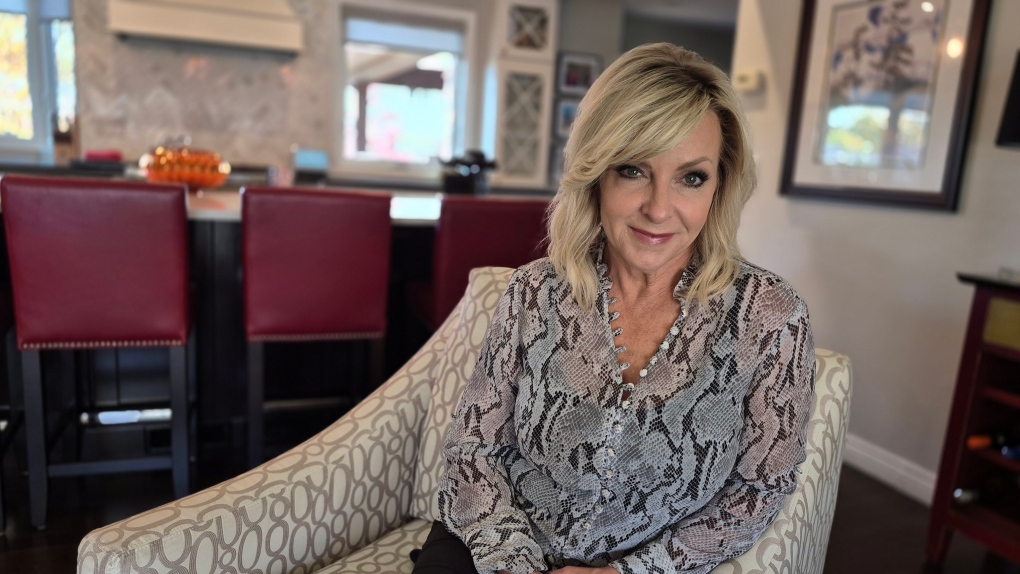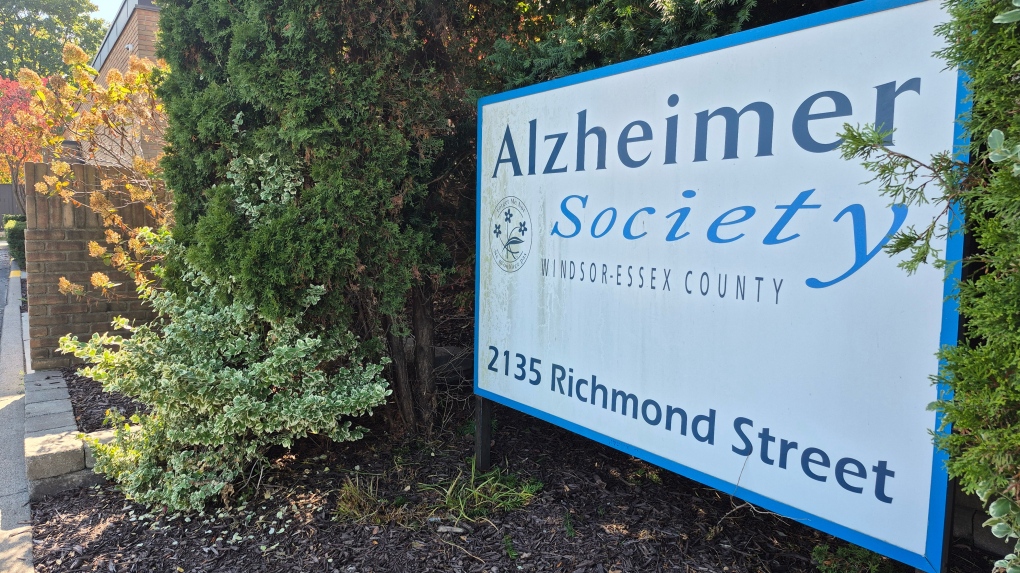As demand for Alzheimer’s care increases, Lisa Williams is 'lucky' to have family by her side for her mother
Despite the uncertainties of caring for a mother with Alzheimer’s disease, Lisa Williams feels fortunate to have the time, energy and support of her immediate family.
The longtime host of "The Morning Drive" on AM800 retired earlier this year to focus on caring for her mother, Margaret, who was diagnosed with Alzheimer’s in 2018.
"All things considered, it has been a slow progression," Williams said. "But from what I've learned, that could change at any moment — and what lies ahead is not great."
It was 2016, two years before the diagnosis, when Williams began noticing changes in her mother’s behaviour, such as forgetting where she put her keys or not remembering why she entered a room.
 Lisa Williams seen in Windsor, Ont. on Oct. 21, 2024. (Sanjay Maru/CTV News Windsor)
Lisa Williams seen in Windsor, Ont. on Oct. 21, 2024. (Sanjay Maru/CTV News Windsor)
"But it was a little more than that," Williams said. "I remember her being very worried about it."
Balancing the demands of hosting a morning radio show — which required her to wake up at 3 a.m. — and helping her father with caregiving responsibilities soon became a challenge, Williams added.
"I didn’t feel like I was giving my parents the care and attention they deserved," said Williams, 57, explaining why she stepped away from the microphone on May 30, 2024.
"I didn’t like being annoyed when I got a phone call. So, retiring has made things easier for all of us."
For families in similar situations, trying to figure out how to care for a loved one diagnosed with Alzheimer's disease, Williams stressed the importance of learning about available resources.
In Windsor-Essex, the local Alzheimer Society offers services like support programs, in-home respite care and day programming to give caregivers a much-needed break.
According to the Alzheimer Society of Windsor-Essex County, about 100 families access the day programming.
"Our wait list is almost as long. We have about 90 families waiting to on-board and start service," said CEO Sally Bennett Olczak. "Before the pandemic, we never saw wait lists at this level."
 Alzheimer Society sign seen in Windsor, Ont. on Oct. 21, 2024. (Sanjay Maru/CTV News Windsor)
Alzheimer Society sign seen in Windsor, Ont. on Oct. 21, 2024. (Sanjay Maru/CTV News Windsor)
"The reality is that our wait lists are growing in a way we’ve never seen before, particularly for our in-home respite program."
Despite the pressure of rising demand, Olczak said it reflects something positive.
"We’ve seen a considerable decrease in stigma around a dementia diagnosis," Olczak added.
"This population self-advocates as well. We often see people self-referring after speaking with their primary care practitioner and coming to the Alzheimer Society for services."
When asked about the warning signs of Alzheimer’s, Olczak said they vary between individuals.
While forgetfulness is most associated with the disease, it can manifest in other ways that affect day-to-day functioning.
"Changes in mood, changes in personality, inability to perform daily tasks, getting lost on the way to the grocery store, not being able to find your car in the parking lot afterwards," said Olczak.
"When things reach that level, that’s when people turn to their primary care practitioners."
As for Williams, she said retirement has brought her peace of mind, knowing her 84-year-old father no longer bears the brunt of caring for her 82-year-old mother.
"Getting enough sleep is huge for me so I feel much better," said Williams, referring to no longer having to wake up early for work.
"I’m continuing to exercise and balance my day that way, so I’m mentally more prepared to deal with whatever comes our way."
Williams said she knows how "lucky" she is to have a father who can physically care for her mother and a brother who lives nearby and can help too.
"It’s hard," said Williams. "I can’t imagine those families where the kids live out of town and the parents are forced to deal with this on their own. It’s a very scary thing."
CTVNews.ca Top Stories

W5 Investigates A 'ticking time bomb': Inside Syria's toughest prison holding accused high-ranking ISIS members
In the last of a three-part investigation, W5's Avery Haines was given rare access to a Syrian prison, where thousands of accused high-ranking ISIS members are being held.
As Australia bans social media for children, Quebec is paying close attention
As Australia moves to ban social media for children under 16, Quebec is debating whether to follow suit.
Irregular sleep patterns may raise risk of heart attack and stroke, study suggests
Sleeping and waking up at different times is associated with an increased risk of heart attack and stroke, even for people who get the recommended amount of sleep, according to new research.
California man who went missing for 25 years found after sister sees his picture in the news
It’s a Thanksgiving miracle for one California family after a man who went missing in 1999 was found 25 years later when his sister saw a photo of him in an online article, authorities said.
Trudeau Liberals' two-month GST holiday bill passes the House, off to the Senate
The federal government's five-page piece of legislation to enact Prime Minister Justin Trudeau's promised two-month tax break on a range of consumer goods over the holidays passed in the House of Commons late Thursday.
Notre Dame Cathedral: Sneak peek ahead of the reopening
After more than five years of frenetic reconstruction work, Notre Dame Cathedral showed its new self to the world Friday, with rebuilt soaring ceilings and creamy good-as-new stonework erasing somber memories of its devastating fire in 2019.
Canada Post temporarily laying off striking workers, union says
The union representing Canada Post workers says the Crown corporation has been laying off striking employees as the labour action by more than 55,000 workers approaches the two-week mark.
Can't resist Black Friday weekend deals? How to shop while staying within your budget
A budgeting expert says there are a number of ways shoppers can avoid getting enveloped by the sales frenzy and resist spending beyond their means.
Montreal shopping mall playing 'Baby Shark' song to prevent unhoused from loitering
A shopping mall and office complex in downtown Montreal is being criticized for using the popular children's song 'Baby Shark' to discourage unhoused people from loitering in its emergency exit stairwells.


































